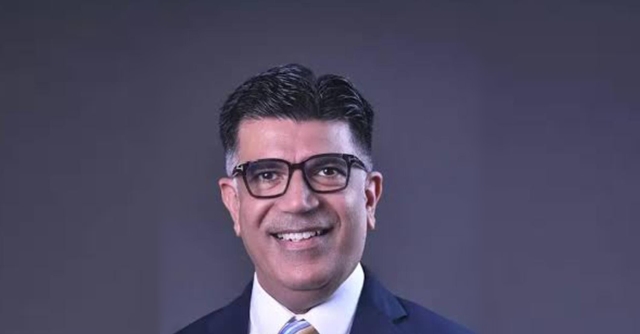
Cybersecurity in OT settings a primary focus for us: Rockwell Automation's Sawhney


Industrial automation equipment maker, Rockwell Automation, which currently employs 4,500 people and has a majority of its Indian tech workers in Noida, Pune, Chennai and Bengaluru, counts manufacturing giants, including Reliance Industries, Mahindra Group and MRF, among others, as its customers. In an interview with TechCircle, Dilip Sawhney, Managing Director, Rockwell Automation India, highlighted the critical role of innovation in India's manufacturing landscape. He also outlined the company's focus on industrial automation and smart manufacturing through the adoption of cutting-edge technology and the recruitment of additional talent for its technology hubs. Edited excerpts:
In what areas do you believe India is struggling in terms of smart manufacturing?
India is progressing in manufacturing, yet it has a considerable distance to cover to meet top-tier standards. Currently, the manufacturing landscape is a blend of optimism and pessimism. While digital technology and smart manufacturing are fostering sustained growth in manufacturing activities, India's manufacturing sector only contributes about 15% to the GDP, well below the desired 25% observed in developed nations. Achieving a trillion-dollar manufacturing sector and reaching a 5 trillion economy entails substantial transformation. This transformation includes investing in infrastructure to support advanced technologies like IoT, robotics, and automation. The digital shift is also vital for Indian MSMEs to compete globally and propel GDP growth. Here, cloud technologies assume a pivotal role. Smaller enterprises find cloud and cloud-enabled manufacturing services more pertinent than larger counterparts. Technology has levelled the playing field, enabling smaller enterprises to tap into equivalent capabilities as larger ones, tailored to their needs and pay-per-use model. In the past, such accessibility was exclusive to larger firms. Hence, I foresee immense potential in this domain, with the nation not far from becoming a hub for smart manufacturing.
What is the strength of your current workforce in India, and what cutting-edge tech projects are being carried out at your India factory?
We marked 40 years of our presence in India last year, a significant milestone for us. We have been cultivating capabilities in India, boasting a workforce of around 4,500 individuals, doubling in less than five years. We are situated across 17 locations in India, predominantly in the NCR region, Pune, Bengaluru, and Chennai. Other locations strategically positioned near customers cater to sales, business development, customer support, and service projects. This growth reflects the rapid expansion of our Indian operations.
What are your strategies for expanding in the Indian market, particularly concerning growing the tech workforce or establishing additional manufacturing facilities?
More than 85% of our business in India originates from domestic companies. While we also serve global clients, a substantial portion of our business emanates from the Indian manufacturing ecosystem. Recently, India has become an integral part of our global supply chain, with a new Greenfield facility announced in Chennai. Scheduled to commence operations in 2024-2025, this digital-centric facility aims to bolster our supply chain's resilience. Focused on customer-specific systems engineered for global clients, this facility falls under our engineer to order (ETO) line of business. Approximately 250-300 new positions are expected. Moreover, our presence extends beyond major cities to manufacturing-centric locales like Jamshedpur and Bhubaneswar. Continuously attracting talent sometimes necessitates establishing a presence in regions abundant with specific talent. ETO is a manufacturing process that involves designing and producing a product according to the specific requirements of a customer once an order has been placed.
How do you differentiate your offerings in a saturated market?

Specialising solely in industrial automation and digital transformation sets us apart from competitors, as we have directed substantial investments towards these areas without the distraction of competing products or services like motors and switchgear. We have been constantly leveraging interoperability, connectivity, and artificial intelligence (AI) to revolutionise industrial automation, enabling seamless integration and shaping the future of manufacturing with Industrial Internet of Things (IIoT) and AI optimisation. We are also thriving through strategic acquisitions and partnerships.
Over the past year, you have made acquisitions such as Verve, Clearpath, and others. How have these helped you gain a competitive edge, and do you plan further partnerships in the coming months?
In October last year, we acquired Verve Industrial Protection, a cybersecurity software firm specialising in asset inventory and vulnerability management systems for the operational technology (OT) environment. We also acquired OTTO Motors, a division of Clearpath Robotics, a Canadian company specialising in autonomous mobile robots for research and development with a focus on manufacturing and logistics. These acquisitions are integral to staying relevant to our clientele and advancing our digital transformation initiatives. We are open to evaluating potential acquisitions that align with our business objectives and make us relevant to our clients.
In which areas do you plan to focus in the upcoming 12-18 months?
Cybersecurity in OT settings remains a paramount concern for customers and will continue to be a primary focus for us. A significant trend emerging globally, including in India's manufacturing sector, is the adoption of Generative AI (GenAI), which can aid manufacturers in designing and producing products more efficiently and cost-effectively, improve supply chain management, and enhance the overall customer experience. This is also an area we are exploring. Our presence in India continues to expand with a strong focus on industrial automation, digital transformation, and focusing on a resilient supply chain to meet the evolving demands of our global clientele.

